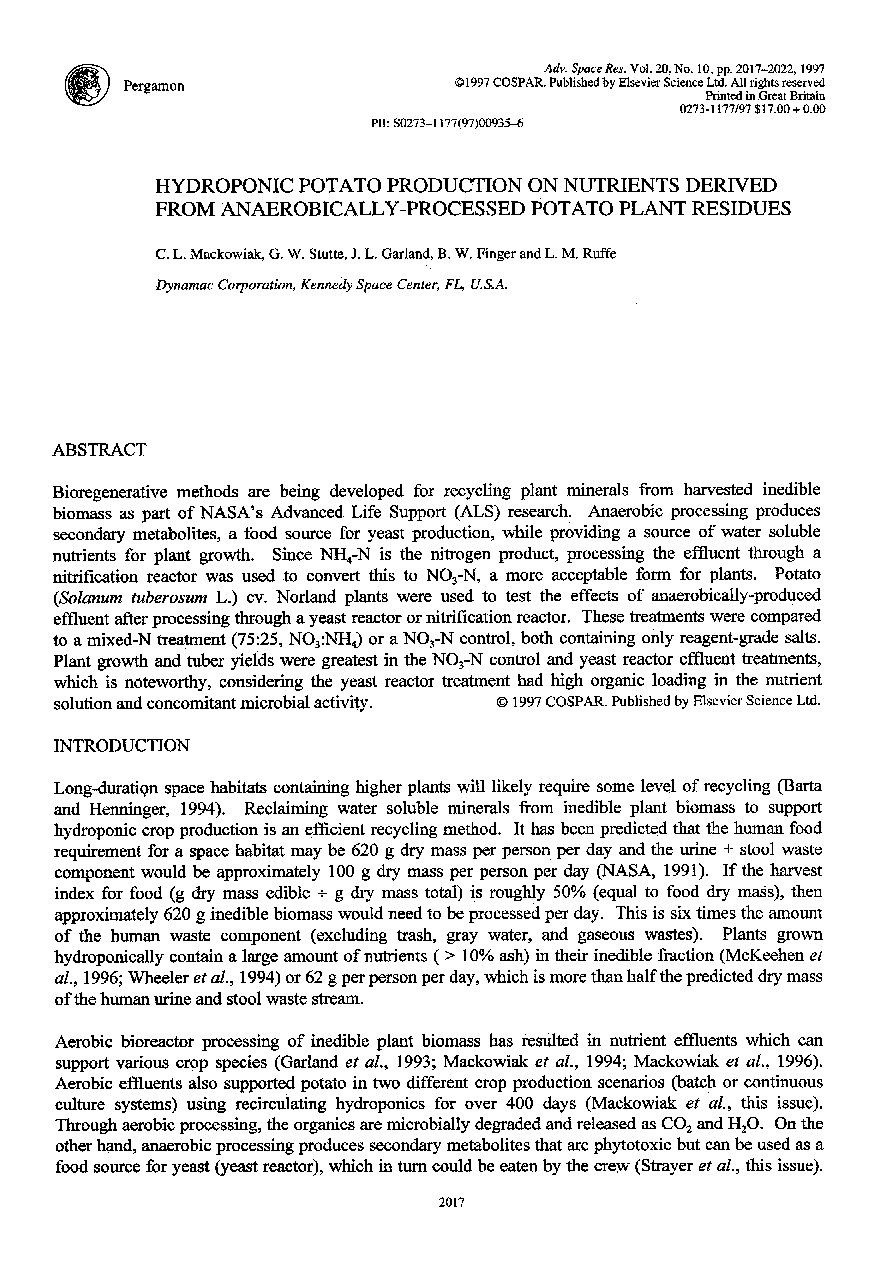| Article ID | Journal | Published Year | Pages | File Type |
|---|---|---|---|---|
| 1770374 | Advances in Space Research | 2017 | 6 Pages |
Bioregenerative methods are being developed for recycling plant minerals from harvested inedible biomass as part of NASA's Advanced Life Support (ALS) research. Anaerobic processing produces secondary metabolites, a food source for yeast production, while providing a source of water soluble nutrients for plant growth. Since NH4N is the nitrogen product, processing the effluent through a nitrification reactor was used to convert this to NO3N, a more acceptable form for plants. Potato (Solanum tuberosum L.) cv. Norland plants were used to test the effects of anaerobically-produced effluent after processing through a yeast reactor or nitrification reactor. These treatments were compared to a mixed-N treatment (75:25, NO3:NH4) or a NO3N control both containing only reagent-grade salts. Plant growth and tuber yields were greatest in the NO3N control and yeast reactor effluent treatments, which is noteworthy, considering the yeast reactor treatment had high organic loading in the nutrient solution and concomitant microbial activity.
